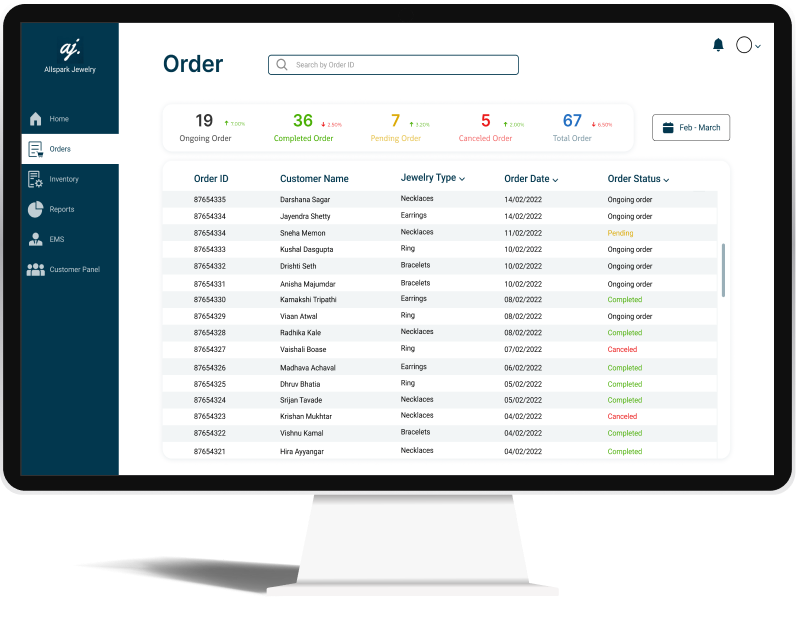Revolutionize The Enterprise Approach: Exploring the Benefits of CRM Systems
In the current rapid corporate landscape , customer relationships are crucial. Businesses are continuously seeking ways to improve their relationships with clients and optimize their operations. One powerful tool that has emerged to meet these needs is CRM software. This technology offers businesses a comprehensive approach to managing interactions with current and potential clients, resulting in improved satisfaction and commitment.
Adopting a CRM system can transform how organizations function by providing essential insights into client actions, preferences , and needs . By consolidating client data, organizations can make informed decisions, enhance communication across teams, and ultimately provide a more personalized experience. As more organizations recognize the value of a well-implemented CRM strategy, the advantages of this software become more apparent, not just for productivity but also for attaining sustained success.
Increased Customer Understanding
One of the primary advantages of CRM systems is its capability to provide businesses with greater insights into their customers. By consolidating customer data from various touchpoints, businesses can gain a comprehensive view of customer actions, likes, and interactions. This wealth of information allows companies to understand the target market better, which makes it easier to tailor products and services to meet specific needs.
In addition, CRM systems facilitate data evaluation, enabling companies to identify trends and trends in customer actions. For instance, businesses can track purchasing habits over the years or identify which advertising campaigns resonate most with the audience. Such insights empower organizations to make intelligent decisions, enhancing the overall strategy and resulting in better marketing initiatives and sales techniques.
Lastly, CRM software supports improved communication channels with clients. By maintaining crm training detailed history of customer engagements, organizations can personalize their outreach activities. This level of customization not just fosters better relationships but also leads to increased customer contentment rates. Ultimately, the understandings garnered from CRM systems equip companies with the tools necessary to create deeper relationships with their clientele.
Improved Revenue Oversight
Effective sales oversight is vital for any business seeking to enhance its profits and expansion. CRM systems provides companies with resources to simplify their sales processes, from lead acquisition to closing deals. By consolidating customer details, sales departments can gain valuable insights into customer behavior and likes, enabling increased personalized engagements and focused sales strategies. This leads to better closing rates and amplified overall sales outcomes.
Furthermore, CRM systems allow better tracking and pursuit of leads. With automatic reminders and task assignments, sales representatives can ensure that no chance slips through the gaps. The ability to analyze sales data helps teams identify trends and anticipate future sales opportunities. This analytics-based approach empowers organizations to make informed decisions, optimize their sales tactics, and react to market shifts swiftly.
Also, CRM software fosters cooperation among sales staff. By sharing customer contacts and maintaining a clear record of communication, groups can work together more effectively. This collaboration leads to a cohesive approach towards customer engagement, enhancing the overall sales process. When the team is on the same wavelength, it leads to better cooperation and ultimately drives greater revenue and customer contentment for the company.
Enhanced Customer Loyalty

A key benefit of CRM systems is its potential to enhance customer retention rates. By offering businesses with a integrated platform to handle customer interactions, CRM systems allow organizations to monitor customer preferences, purchase history, and feedback. This valuable information allows businesses to tailor their offerings and communications to satisfy the unique needs of their customers, promoting a more personalized experience that encourages loyalty.
Additionally, CRM software facilitates timely follow-ups and forward-thinking customer service. Scheduled reminders and alerts assist businesses connect with customers at key moments, such as before a subscription expires or in response to feedback. By indicating that a business respects its customers and is attentive to their needs, CRM systems can significantly reduce churn rates and improve overall customer satisfaction.
Finally, effective use of CRM data can assist identify at-risk customers, allowing businesses to take preemptive measures to retain them. By examining interaction history and behavioral trends, companies can execute targeted marketing strategies or exclusive offers to recapture disengaged customers. This calculated approach to customer retention not only reinforces relationships but also adds to lasting business growth.